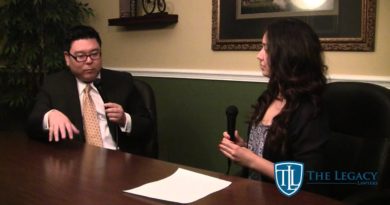Should My Indiana Estate Plan Include a Life Estate?
A comprehensive estate plan aims to accomplish numerous goals that go above and beyond just distributing the creator’s estate assets after he/she is gone. Protecting assets, both during life and after death, should be one of those additional goals. The way in which you hold legal title to real property can directly impact your ability to achieve that goal. With that in mind, an Indianapolis attorney at Frank & Kraft discusses whether you should include a life estate in your Indiana estate plan.
Understanding a Life Estate
Real property, such as a home, commercial building, or land, is often part of an individual’s estate when they pass away. The legal ownership status of this property directly impacts how it will be owned, taxed, and used after the owner’s death. In cases of joint ownership, the type of co-ownership arrangement is crucial. Therefore, it is essential to grasp the various ways in which property can be jointly owned and how each type of co-ownership impacts the property after your death. While a “life estate” is not technically a form of joint ownership, it does confer ownership rights to two or more individuals. Moreover, it is an attractive estate planning option for some people.
To establish a life estate, the property owner (referred to as the “Grantor”) legally grants a life estate to someone (referred to as the “life tenant”) and designates a “remainderman” to whom the property will revert upon the life tenant’s passing. While both the life tenant and the remainderman hold legal ownership interests in the property, they do not jointly own it as tenants in common or joint tenants do. Instead, the life tenant possesses the legal right to live on and use the property for their lifetime. The remainderman’s legal right to possession only comes into effect upon the life tenant’s death, at which point the remainderman automatically becomes the sole owner and possessor of the property.
How Does Creating a Life Estate Impact My Indiana Estate Plan?
Including a life estate as part of your estate assets at the time of your death has both advantages and disadvantages. A significant advantage of a life estate is that it allows the property to bypass the probate process after your death, as the designated remainderman automatically becomes the legal owner of the property upon your passing. Often, parents create a life estate, designating an adult child as the remainderman, as a straightforward way to transfer ownership to the child after the parent’s death.
Another important advantage for the remainderman is the ability to use a stepped-up basis for calculating capital gains taxes. This means that when the remainderman sells the property, capital gains taxes are calculated based on the property’s value at the time of your death, when the remainderman legally acquired ownership, rather than the property’s value at the time you originally purchased it.
If long-term care planning is a concern within your estate plan, creating a life estate can also aid in Medicaid planning because transfers through a life estate deed do not affect your eligibility for Medicaid, and the property cannot be reclaimed by the State through the Medicaid Estate Recovery Program after you are gone – something that should be a concern when property is owned using other types of title.
One disadvantage of creating a life estate is that it can be challenging to secure financing for the property when both a life tenant and a remainderman are involved. Additionally, the debts of the remainderman can potentially result in a lien on the property. A life tenant cannot, however, be forced to vacate the property based on a lien arising from the remainderman’s debt.
Do You Have Additional Questions about an Indiana Life Estate?
For more information, please join us for an upcoming FREE seminar. If you have additional questions about an Indiana life estate, contact an experienced Indianapolis estate planning attorney at Frank & Kraft by calling (317) 684-1100 to schedule an appointment.
Paul Kraft is Co-Founder and the senior Principal of Frank & Kraft, one of the leading law firms in Indiana in the area of estate planning as well as business and tax planning.
Mr. Kraft assists clients primarily in the areas of estate planning and administration, Medicaid planning, federal and state taxation, real estate and corporate law, bringing the added perspective of an accounting background to his work.
Latest posts by Paul A. Kraft, Estate Planning Attorney (see all)






